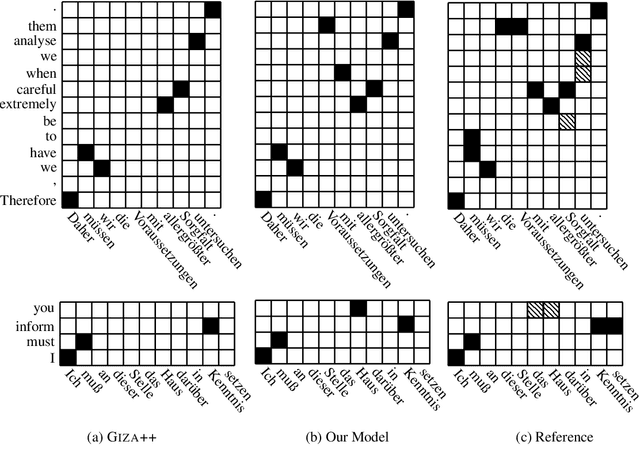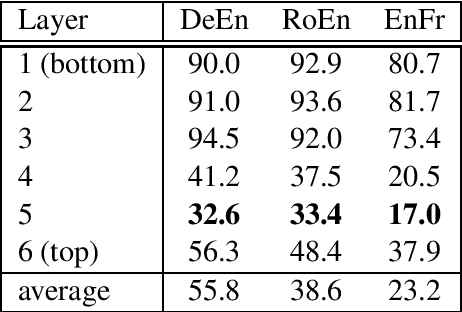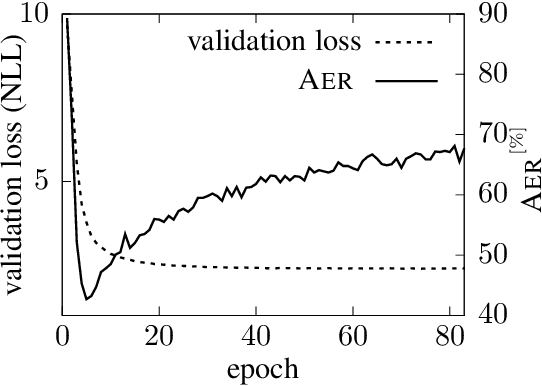Jointly Learning to Align and Translate with Transformer Models
Paper and Code
Sep 04, 2019



The state of the art in machine translation (MT) is governed by neural approaches, which typically provide superior translation accuracy over statistical approaches. However, on the closely related task of word alignment, traditional statistical word alignment models often remain the go-to solution. In this paper, we present an approach to train a Transformer model to produce both accurate translations and alignments. We extract discrete alignments from the attention probabilities learnt during regular neural machine translation model training and leverage them in a multi-task framework to optimize towards translation and alignment objectives. We demonstrate that our approach produces competitive results compared to GIZA++ trained IBM alignment models without sacrificing translation accuracy and outperforms previous attempts on Transformer model based word alignment. Finally, by incorporating IBM model alignments into our multi-task training, we report significantly better alignment accuracies compared to GIZA++ on three publicly available data sets.
 Add to Chrome
Add to Chrome Add to Firefox
Add to Firefox Add to Edge
Add to Edge